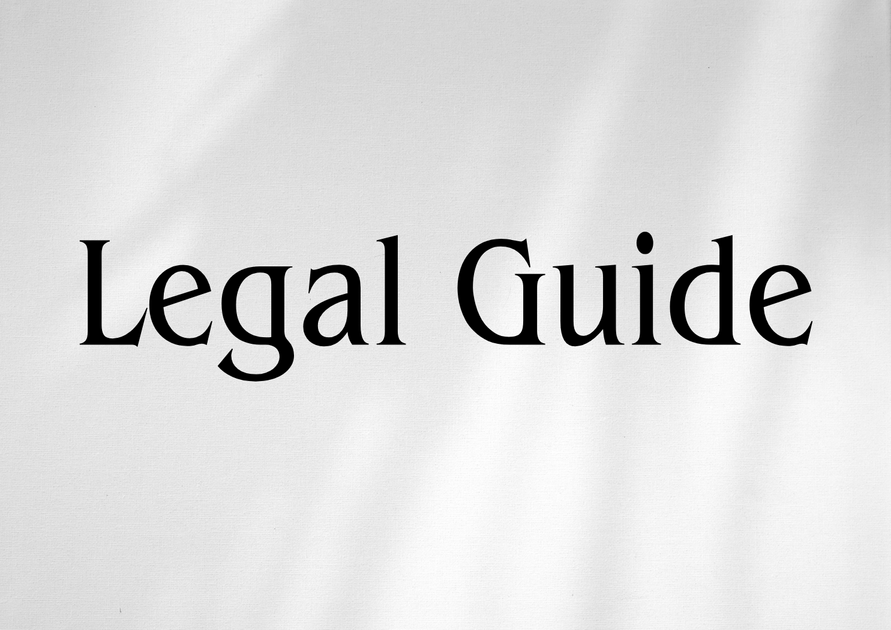Introduction: The Strategic Importance of Corporate Record Keeping and Disclosure in UAE Law
In today’s rapidly evolving business landscape, robust corporate record keeping and transparent disclosure are not merely matters of administrative best practice—they are legal imperatives central to corporate governance and compliance in the United Arab Emirates (UAE). In the wake of recent sweeping reforms, including updates to Federal Law No. 32 of 2021 on Commercial Companies and associated Cabinet Resolutions, the expectations on entities operating in the UAE have expanded significantly. The UAE’s strategic vision to position itself as a premier global business hub demands stringent corporate controls, driving both regulatory enforcement and stakeholder expectations to unprecedented levels. Whether you are an executive, legal counsel, HR manager, or compliance officer, understanding the requirements for record keeping and disclosure is crucial—not only to maintain legal standing, but to foster business resilience, investor confidence, and sustainable growth. This analysis unpacks the latest UAE legal framework for corporate records, tracing legislative roots, highlighting actionable compliance measures, and spotlighting best-in-class practices, ensuring your organization is compliant and future-ready.
Table of Contents
- Legal Framework Governing Corporate Record Keeping and Disclosure
- Key Corporate Record Keeping Requirements: Detailed Analysis
- Disclosure Obligations under UAE Law: Depth and Breadth
- 2025 Updates: Recent Amendments and Policy Trends
- Comparative Table: Old vs New UAE Corporate Record Provisions
- Real-World Application: Consultancy Insights and Case Studies
- Risks, Penalties, and Compliance Strategies
- Best Practices: Compliance Checklist and Recommendations
- Conclusion and Forward-Looking Perspectives
Legal Framework Governing Corporate Record Keeping and Disclosure
Federal Law No. 32 of 2021 on Commercial Companies
The centerpiece of corporate compliance in the UAE, Federal Law No. 32 of 2021 replaces its predecessor (Federal Law No. 2 of 2015), marking substantive procedural and regulatory advances. The law, often termed the Commercial Companies Law (CCL), establishes the mandatory standards for (a) the creation, preservation, and audit of corporate records, and (b) the contours of mandatory disclosures to shareholders, authorities, and, in some cases, the public. Failure to adhere to these obligations exposes companies and directors to fines, operational restrictions, and reputational harm.
Cabinet and Ministerial Resolutions
Further clarification and specification of record keeping and disclosure arise from:
- Cabinet Resolution No. 58 of 2020 on Ultimate Beneficial Ownership (UBO) registers.
- Federal Decree-Law No. 20 of 2018 and its updates, targeting anti-money laundering and counter-terrorism financing, mandating granular record retention for compliance and audit.
- Ministerial Resolution No. 100 of 2020 concerning the maintenance of accounting books and records.
These instruments, regularly updated on the UAE Ministry of Justice portal and the Federal Legal Gazette, are binding across all mainland companies, with additional sector-specific rules for free zones, financial institutions, and public companies issued by relevant authorities such as the Dubai Financial Services Authority (DFSA) or the Abu Dhabi Global Market (ADGM) regulator.
Key Corporate Record Keeping Requirements: Detailed Analysis
What Constitutes ‘Corporate Records’ Under UAE Law?
Corporate records, as defined by UAE law, encompass all documentary evidence forming the legal, financial, and operational core of an entity. This includes:
- Statutory registers (shareholders, directors, UBO)
- Articles and Memorandum of Association (AoA/MoA)
- Board and shareholder meeting minutes
- Annual and interim financial statements, auditors’ reports
- Contracts, resolutions, and power of attorney details
- Tax documentation (VAT records, invoices, customs papers)
- Employee registers and payroll
- Licensing and regulatory filings
Legal Retention Periods and Storage Requirements
Under Article 26 of Federal Law No. 32 of 2021 and Ministerial Resolution No. 100 of 2020, the minimum statutory retention period for most core corporate records is five (5) years from the relevant transaction or fiscal year’s end. In certain circumstances—especially for companies in regulated sectors—this period may extend to ten (10) years.
| Record Type | Statutory Retention Period | Format Allowed |
|---|---|---|
| Accounting Books & Financial Statements | 5 years | Original/hardcopy or certified electronic |
| Shareholder & Director Registers | 5 years after directorship/ownership ends | Original/hardcopy or secure digital |
| UBO Register | 5 years after dissolution | Electronic, regularly updated |
| Board & Shareholder Meeting Minutes | 5 years | Original/hardcopy or scanned |
| Payroll & HR Records | 5 years | Original/softcopy |
Table 1: Core Record Types and Retention Requirements (per UAE Federal and Ministerial regulations)
Acceptable Formats and Security
Companies may maintain records in hardcopy or secure digital formats, subject to authenticity, accessibility, and protection from unauthorized access or destruction. Entities storing records electronically are expected to implement robust cybersecurity protocols and regular backup procedures. Inspection readiness—records must be retrievable within a reasonable timeframe when demanded by authorities—is imperative under the law.
Disclosure Obligations under UAE Law: Depth and Breadth
Who Must Disclose and What Must Be Shared?
The obligation to disclose applies broadly, touching all entities active in the UAE (with enhanced stringency for public, financial, and regulated entities). Core disclosure categories include:
- Annual Financial Reports to shareholders and, in some cases, to the public and regulatory authorities. Mandatory audit compliance is set out in Articles 27–29 of Federal Law No. 32 of 2021.
- Ultimate Beneficial Ownership (UBO) Registers submission to the Ministry of Economy as mandated by Cabinet Resolution No. 58 of 2020.
- Significant Contracts, Resolutions, or Share Issuances that change the company’s structure or shareholding, to be notified to the relevant licensing authority.
- Changes in Directors, Managers, or UBOs within 15 days, per official guidance from the UAE Ministry of Economy.
- AML/CFT-Related Filings under Federal Decree-Law No. 20 of 2018, including suspicious transaction reports and customer due diligence records.
Public VS Private Disclosure
Private limited companies share reports and documentation primarily with shareholders and regulatory bodies. Meanwhile, public companies have additional obligations for wider stakeholder disclosure, especially concerning financial performance and corporate governance, as supervised by the UAE Securities and Commodities Authority (SCA).
Human Resource and Payroll Disclosure
Maintaining and, upon request, disclosing accurate employee registers and payroll records are critical under the UAE Labour Law (Federal Decree–Law No. 33 of 2021) and UAE Ministry of Human Resources and Emiratisation regulations (notably Cabinet Decision No. 1 of 2022). This ensures wage protection, labor rights observance, and transparency during audits.
2025 Updates: Recent Amendments and Policy Trends
Modernisation of Digital Record Keeping
Recent UAE policy emphasizes digital transformation in legal compliance. Key 2025 updates include:
- Formal recognition of blockchain-backed records for certain transaction logs.
- Mandatory e-filing of UBO registers by most mainland and free zone entities, with integrated digital authentication requirements.
- Introduction of secure cloud storage standards for outsourced record keeping, subject to physical UAE data localization requirements for specific industries.
Sanctions for Non-Compliance: 2025 Penalty Review
Regulators have increased fines under Cabinet Resolution No. 58 of 2020, with maximum penalties up to AED 100,000 for persistent non-compliance and repeat violations. Directors and officers may be held personally liable for willful neglect or destruction of records under certain aggravated circumstances.
| Legal Breach | Penalty (Pre-2021) | Penalty (2025 Update) |
|---|---|---|
| Failure to file UBO Register | AED 20,000 | AED 50,000–100,000 |
| Incomplete statutory books | AED 10,000 | AED 20,000–50,000 |
| Destruction or falsification of records | AED 50,000 (max) | AED 100,000 + potential criminal liability |
Table 2: Penalty Comparison—Old vs New Regime (2025)
Comparative Table: Old vs New UAE Corporate Record Provisions
| Provision Topic | Federal Law No. 2 of 2015 (Old) | Federal Law No. 32 of 2021 (Current) |
|---|---|---|
| Retention Period for Records | 5 years (general) | 5–10 years (sector-specific extension) |
| Allowed Storage Format | Hardcopy only (norm) | Hardcopy + certified digital/electronic |
| UBO Register | Not required | Mandatory, with e-filing and updating |
| Enforcement Mechanisms | Fines, warnings | Higher fines, license suspension, criminal prosecution for severe breaches |
Table 3: Legal Evolution—Side-by-Side Comparison
Real-World Application: Consultancy Insights and Case Studies
Case Study 1: New Multinational Branch Establishment
A top-tier global logistics company, entering UAE mainland in 2024, faced challenges aligning its global document management system with UAE’s strict retention and disclosure rules. Upon legal review, the following steps assured compliance:
- Implemented a dual-format storage system (physical in Dubai and encrypted cloud storage hosted within the UAE).
- Ensured quarterly audits of UBO register, synced with the Ministry of Economy’s portal.
- Conducted training sessions for staff on internal disciplinary consequences for incomplete or delayed filings.
Outcome: The company achieved full compliance; subsequent Ministry inspection resulted in zero observations.
Case Study 2: Payroll Records and Labor Investigations
A UAE-based SME facing a Ministry audit was unable to produce verified payroll records for the previous three years. The breach triggered a formal warning, financial penalty, and forced the company to implement a new HR records system, integrating payroll with secure digital archiving. This case illustrates how meticulous HR record management is vital not only for legal compliance but for employee trust and business continuity.
Insights for Free Zone Companies
While free zones may have supplementary requirements, the fundamental obligations under federal law remain. As an example, Dubai Multi Commodities Centre (DMCC) mandates member companies to maintain statutory records and submit annual returns via an online portal, with audits by accredited firms. Non-compliance can result in shareholder action or regulatory intervention, even for foreign-owned entities.
Risks, Penalties, and Compliance Strategies
Risks of Non-Compliance
- Regulatory Sanctions: Severe fines, license suspension or revocation, and criminal liability for willful breaches.
- Reputational Impact: Negative publicity undermining investor confidence and potential business partnerships.
- Operational Disruptions: Inability to secure bank financing or pass regulatory checks can halt expansion or cause contract terminations.
- Legal Proceedings: Directors may be personally liable in civil or criminal courts for egregious failures.
Strategies for Robust Compliance
- Regular Training and Awareness: Keep internal teams apprised of the latest legal requirements via quarterly briefings.
- Digital Transformation: Invest in secure, compliant electronic record keeping systems with audit trails and strict access controls.
- Periodic Internal Audits: Engage independent auditors for annual compliance assessments (especially for UBO, AML, tax, and HR records).
- Legal Documentation Review: Have legal counsel review critical documents and procedures periodically, especially upon legislative updates.
Suggested Visual: A process flow chart outlining the full compliance cycle: record creation → secure storage → periodic audit → timely disclosures → regulatory check.
Best Practices: Compliance Checklist and Recommendations
Recommended Compliance Checklist
| Task | Frequency | Responsible |
|---|---|---|
| Update UBO and statutory registers | Quarterly or upon any change | Company Secretary / Compliance Officer |
| Submit annual financial statements | Annually | Finance Department |
| Maintain payroll and HR records | Monthly / ongoing | HR Manager |
| Back up digital files | Weekly | IT/Records Management Team |
| Review statutory reporting obligations | Semi-annually | Legal Counsel |
| Conduct internal compliance audits | Annually | External/Internal Auditor |
Pro consultancy tip: Consider appointing a dedicated Compliance Officer or partnering with a professional legal consultancy for ongoing advisory support to stay ahead of evolving UAE requirements.
Conclusion and Forward-Looking Perspectives
The UAE’s commitment to modernizing its legal infrastructure, promoting transparency, and aligning with global best practices places meaningful obligations on all companies, whatever their size or sector. The recent 2025 legal updates add teeth to enforcement and reward proactive compliance. Those companies that embrace digital transformation, foster a culture of internal accountability, and work closely with legal advisors will reduce operational risk and strengthen credibility across the region—and globally.
As the UAE moves towards an era of unprecedented legal regulation and economic diversification, organizations that consider record keeping and disclosure not just as statutory demands, but as pillars of good governance, will be strongly positioned to thrive in the new business landscape. It is imperative for every executive and legal advisor to treat compliance as an ongoing journey—invest in technology, empower your team, and embrace a proactive, holistic approach to UAE legal compliance in 2025 and beyond.



